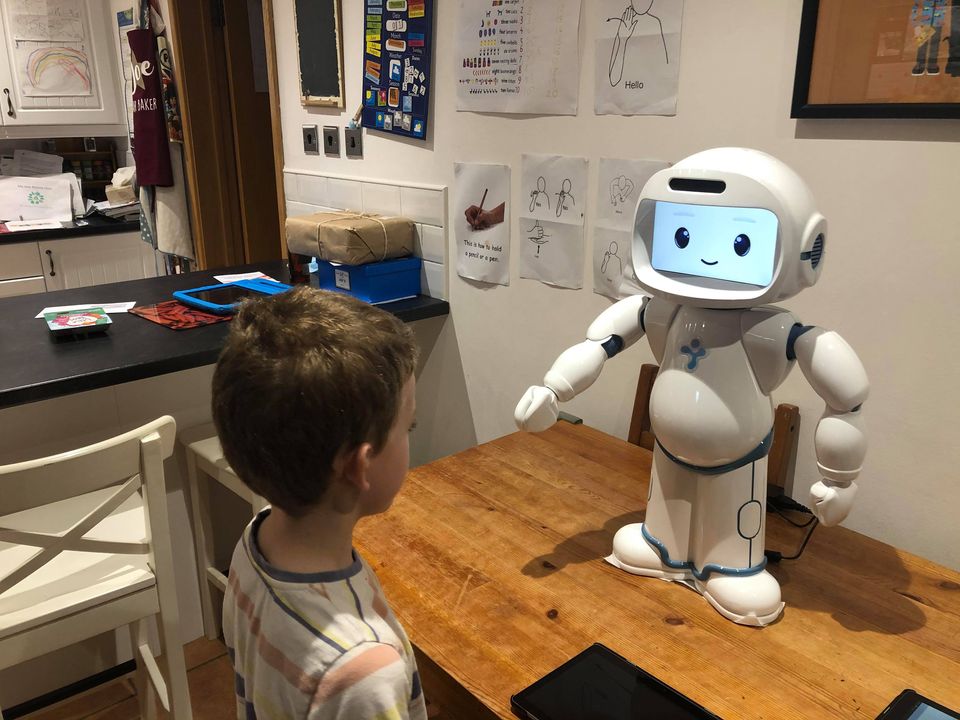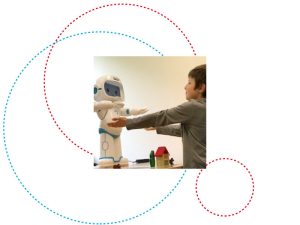LuxAI, the creators of the expressive humanoid social robot ‘QTrobot’ and SnT spin-off, have been awarded 1.86 million EUR for a research project in partnership with the Luxembourg Institute of Health (LIH). The funding, announced last Friday, is from the Ministry of the Economy, the Luxembourg National Research Fund (FNR) and Luxinnovation’s first Joint Call for HealthTech projects launched on 1 April 2021.
LuxAI is one of four companies to receive funding in this inaugural call for HealthTech projects, out of the eight projects submitted. Full details about Friday’s news from the Ministry of the Economy can be found here: link.
LuxAI’s project in partnership with the LIH is focused on validating the clinical effectiveness of an early at-home intervention for young children with autism delivered by the QTrobot. The project will be a large-scale, long-term, and multinational randomized clinical trial. They will also be developing a software that uses the performance data collected by QTrobot during the interactions to provide individualized therapy plans for children and automated assessments from each child’s development in the area of language, cognitive and adaptive development.

This latest award recognizes the achievement of LuxAI in developing and productizing their QTrobot. LuxAI is the leading European manufacture of social robots, shipping its product to over 20 countries internationally and is the first company that has made social robots for autism interventions accessible for consumers for at-home interventions.
“The project has high social and scientific impact potential by pushing the frontier of clinical research on using social robots for offering scalable and accessible evidence-based autism therapy at home,” said Dr Aida Nazarikhorram. “Ever since our beginnings at SnT, we have prioritized research to make sure we are delivering an evidence-based and science driven solution to our customers. This project gives us the opportunity to collaborate with LIH and the leading neuropsychiatry research and therapy centers from UK, France, Germany, Italy and Luxembourg in filling the gap of accessing the critical early intensive interventions for children with autism.”
